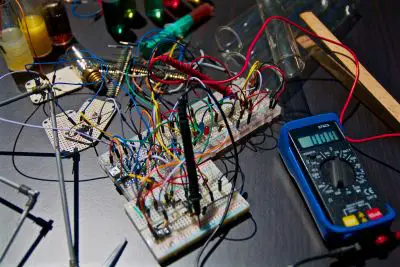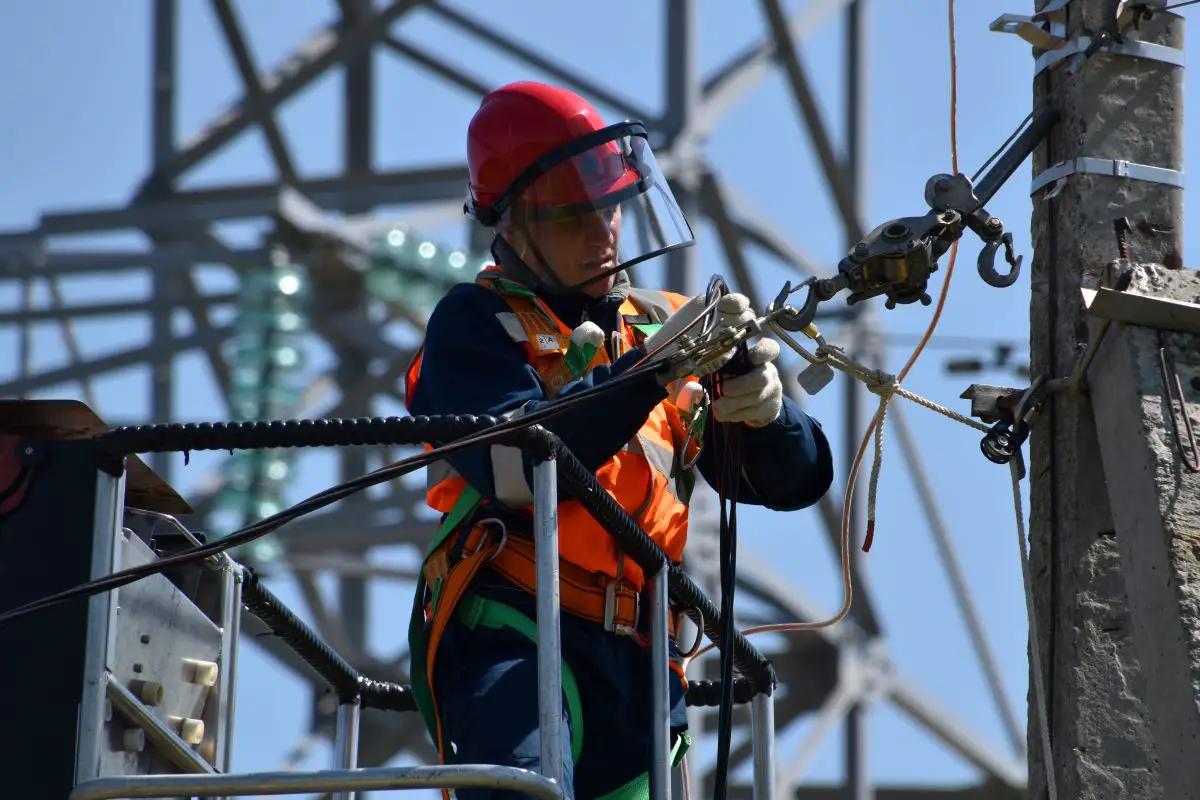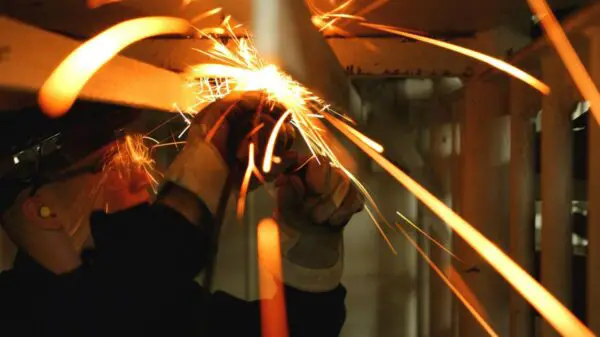Tips for Becoming an Electrician
Something I’ve realized that isn’t talked about enough is how important skilled tradespeople such as electricians are to society and how successful someone can be in these careers.
I know a career as an electrician tends to be lucrative, guarantees plenty of work, and doesn’t require a degree from an expensive, four-year university, but I wondered what else goes into becoming an electrician, so I did some research.
So, what does it take to become an electrician? You’ll need to earn your high school diploma or equivalent, complete an apprenticeship program, and earn your state license. Sometimes you’ll need to complete a vocational program before you can begin your apprenticeship as well.
There are several steps you’ll need to complete to become an electrician and several ways to complete them.

How To Become an Electrician
Here are some simple steps to follow:
1. Get Your High School Diploma or Equivalent
Before you can start down the road of becoming an electrician, you’ll need to obtain your high school diploma or its equivalent such as a GED.
If you can, make sure you take algebra and physical science courses while you’re in high school to prepare for being an electrician. The most important thing is getting your diploma or GED, though.
2. Consider Completing a Vocational Program
Many states offer free or relatively inexpensive vocational programs that you can start during or right out of high school. These programs are meant to prepare you for an apprenticeship program by teaching you the basics of being an electrician and giving you some on-the-job training.
If your state does not have vocational programs, then look into union-sponsored pre-apprenticeship programs or apprenticeship programs that also offer initial training.
3. Complete an Apprenticeship
Electricians start their careers as apprentices, which means they work under the supervision of a licensed electrician.
Apprenticeship programs can last anywhere from four to five years, and in that time, you will learn everything you need to know about electrical wiring, installation, and safety.
4. Become a Licensed Journeyman Electrician
After completing an apprenticeship program, an electrician can become a licensed journeyman electrician. This allows them to work independently and even start their businesses.
To accomplish this, you’ll have to prove you have enough hours of experience as an apprentice and take your state’s licensing exam.
5. Earn Your Master Electrician License
This is an optional step but a necessary one if you want to do more complex electrical work such as designing electrical systems or working on high-voltage systems. It’s also a helpful license to have if you want to run your own business.
Most states will require an electrician to have at least eight years of experience complete two or three years of additional training and pass an exam to become a master electrician.
6. Continue Your Education and Gain Credentials
Finally, electricians can gain more credentials and education by taking classes at community colleges or technical schools. This helps you keep up with the latest changes in electrical codes and innovations in the industry.
Often some of these refresher courses are required to keep your license, but taking additional courses may make you more desirable to employers as well.
What An Electrician Does
An electrician is someone who installs and maintains electrical wiring and equipment. Electricians may work for electrical contractors, in the construction industry, or for a variety of other businesses.
They may install and maintain wiring and equipment in homes, businesses, factories, or construction sites. They may also work on high-voltage systems such as power grids or transmission lines.
The work of an electrician is diverse and can vary depending on where they are employed. Some of the duties an electrician might perform include installing electrical fixtures, wiring buildings for electricity, and maintaining and repairing electrical equipment.
Electricians need to know how to read blueprints and follow safety procedures to minimize the risk of electrical fires or injuries.
Electricians play an important role in our society by helping to keep our buildings and infrastructure maintained and up to date with the latest technology. The work can be challenging, but it is also very rewarding.
Those who have a passion for working with their hands, solving problems, and are interested in learning about electricity are usually the best fit for the career of an electrician.

The Different Types of Electricians
Before completing their apprenticeships, electricians usually need to choose whether they want to be commercial electricians or residential electricians.
Commercial Electricians
Commercial electricians work in businesses and factories. Their work is usually more complex than that of residential electricians as they often install and maintain wiring for things like air conditioning systems, commercial refrigeration units, or large machines.
Residential Electricians
Residential electricians work in homes and are responsible for installing and maintaining the electrical wiring in homes. They may also install fixtures like ceiling fans, light fixtures, or doorbells.
After choosing between the commercial and residential paths, electricians can decide to work as installation electricians or as maintenance electricians.
Installation electricians are the ones who install new wiring and equipment, and maintenance electricians are the ones who maintain and repair existing electrical systems. Both residential and commercial settings need installation and maintenance electricians.
Additional Electrician Specialties
For those who want a challenge, there are a few other types of specialized electricians. These include:
- Marine electrician: A marine electrician installs and maintains electrical systems on boats and ships.
- Industrial electrician: An industrial electrician installs and maintains electrical systems in factories and other industrial settings.
- Electrical engineer: Electrical engineers design, build and test electrical systems. (This requires an undergraduate degree.)
- Lineman: Linemen work on high-voltage electrical lines, such as power grids and transmission lines.
These specializations usually require more education and training than standard electrician positions. However, they also offer more advancement opportunities and can also pay better than basic electrician positions.
How To Find an Apprenticeship
There are several ways to find an apprenticeship. One way is to contact the International Brotherhood of Electrical Workers (IBEW).
The IBEW has teams that visit local high schools and hold information sessions about careers in the electrical trade, including what it takes to become an electrician. You can also contact local unions or contractors directly to find out about reputable apprenticeships in your area.
In addition, if you attend a vocational school or a pre-apprenticeship, your instructors or advisors will have connections to local apprenticeships and can help you find the best fit for you.
What To Look For in An Apprenticeship
When looking into an apprenticeship, it’s important to find out what is expected of you and how much you can expect to earn.
The first thing to look at in an apprenticeship is the list of eligibility requirements. Apprenticeships usually require at least a high school diploma or equivalent and may also require you to pass an entrance exam.
However, some programs will accept applicants who do not meet these criteria and provide them with the education they need before starting their apprenticeship. Others may want you to have a certificate of completion from a vocational program.
What almost all apprenticeships require, though, is commitment. Training to become an electrician takes time – usually four to five years – and it’s important that you truly want this career path when accepting an apprenticeship offer.
The other important factor to consider when looking at an apprenticeship is how much you’ll earn. Apprentices usually start out making around 50% of the salary of a fully trained electrician. However, this percentage increases as you complete your training and move up the career ladder.
Overall, an apprenticeship is a great way to learn the trade and get started in a career as an electrician. With the right qualifications and commitment, you can be on your way to a successful future in this field.

Owning a Business as an Electrician
Many electricians own their businesses, as this can be a great way to make more money and have more control over your career. If this is your goal, it’s a good idea to wait to open your business until after you have built up enough work experience to be a truly skilled electrician or have become a master electrician.
This will give you the respect you need to hire employees and take on clients. If you don’t have solid credentials, you’re going to have to spend a lot more time and money attracting clients and fixing mistakes you made due to a lack of experience.
Once you have a significant amount of experience, there are several things you’ll need to do to start your own business as an electrician. The most important is to get the proper licenses and insurance. You’ll also need a good business plan, marketing materials, and a strong work ethic.
If you’re interested in starting your own business, talk to other electricians in your area or contact the IBEW for more information. They can provide you with resources and advice that will help you get started.
Related Questions
How much do electricians make? The average electrician makes around $60,000 a year. However, this salary can widely vary depending on your position and the region you are working in. For example, electricians who have their businesses can make closer to $100,000 a year, while those who are just starting after their apprenticeships may only make around $30,000 a year.
Is employment expected to increase for electricians? Yes, employment for electricians is expected to grow by around 9% from 2020-to 2030. This is an average occupational growth rate and is estimated to result in about 84,700 job openings each year.
























